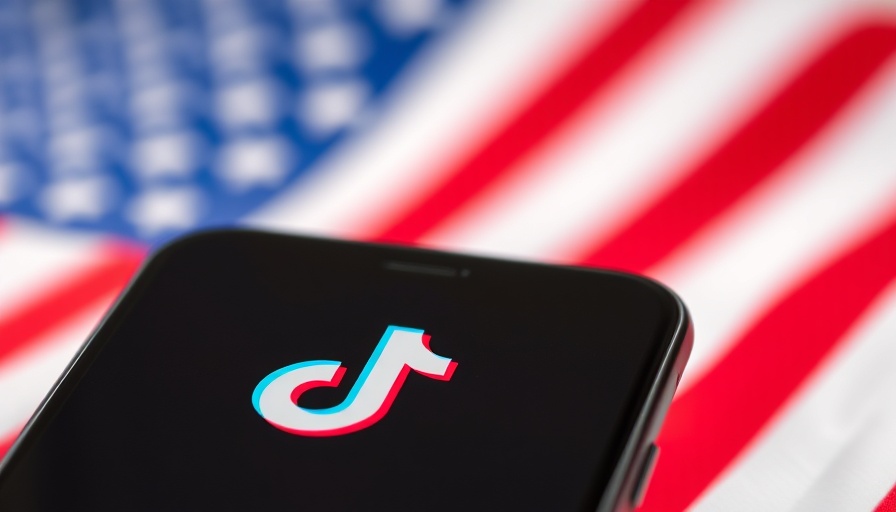
The Countdown to a TikTok Resolution: What Business Leaders Need to Know
The ongoing saga of TikTok’s ownership is reaching a critical juncture, with U.S. Vice President JD Vance expressing confidence in finalizing the initial terms of a deal by the looming April 5 deadline. This anticipated agreement comes amidst mounting national security concerns regarding the app’s Chinese ownership by ByteDance, raising essential questions for business owners about data privacy, market implications, and operational continuity.
Understanding the Urgency Behind the Deal
Since the enactment of a law on January 19 requiring ByteDance to divest its U.S. operations, the urgency of establishing TikTok’s future has only intensified. This law reflects widespread worries about data privacy and the potential misuse of user data by foreign entities, especially amid an increasingly polarized geopolitical climate. As the law remains in effect, the impending deadline places immense pressure on stakeholders to negotiate terms that will ensure TikTok can continue to operate smoothly in the U.S.
A New Face in Leadership: The Role of JD Vance
Vice President Vance has been assigned a pivotal role in overseeing the negotiations, alongside national security adviser Michael Waltz. His commitment to resolving these issues is rooted in both national security and the economic ramifications for the millions of U.S. users and businesses reliant on TikTok as a marketing and engagement tool. Vance’s legal background as a corporate lawyer is also expected to play a significant role in navigating the complexities of the sale.
What the Deal Might Entail
Vance indicated during a recent interview that a high-level agreement is within reach, which may create a distinct American entity that aligns with U.S. security concerns. While specifics of ownership shares and operational contracts remain unresolved, there is hope that a comprehensive framework will emerge that satisfies both national interests and user expectations of seamless service.
Implications for Business Owners
As business leaders actively monitor these developments, the implications are multi-faceted. A transition of ownership could potentially stabilize TikTok’s operations, allowing businesses that leverage the platform for marketing to maintain their engagement with younger demographics. However, if the deal falls through, companies need to prepare for alternative strategies to engage with consumers, which may entail using other platforms or adjusting their marketing channels.
Looking Ahead: The Future of TikTok
Should the negotiations succeed, TikTok could emerge as a U.S.-owned platform with enhanced safeguards around data privacy. This outcome would not only protect American users but also restore confidence among investors and advertisers who view TikTok as a vital tool for outreach and brand engagement. On the other hand, failure to reach an agreement could lead to the app being banned, significantly disrupting the digital marketing landscape.
Call to Action: Prepare for Potential Changes
As the April deadline approaches, it's crucial for business owners to stay informed and consider their options. Engage with industry peers, attend discussions, and stay updated on legal developments to ensure your operations remain robust and adaptable. Securing your business’s digital marketing strategy now could be integral to your future success as the situation unfolds.
 Add Row
Add Row  Add
Add 




Write A Comment